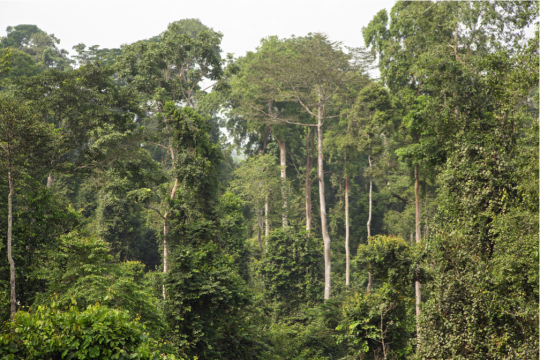Climate Change & Energy
Arocha and 90 CSOs urged China to Protect Biodiversity in Overseas Investments
Source: ghenvironment.com - December 21, 2022

Atewa forest
As part of the campaign to stop plans to mine bauxite in the Atewa Forest, a resource-backed loan deal with China, A Rocha Ghana joined 90 CSOs from Asia, Africa, Latin America, and the world calling on Chinese authorities and actors to protect biodiversity and people in its overseas investments.
With China chairing the 15th Conference of the Parties to the Convention on Biological Diversity (CBD COP15) in December 2022, civil society and impacted communities voiced concerns that many Chinese financiers and overseas developers are not meeting international norms and standards in protecting the environment, people, and biodiversity as obligated under China’s green finance and overseas policy frameworks.
The civil society letter highlights China’s commitment to protecting biodiversity and provides concrete recommendations for how Chinese authorities and overseas actors can do their part in stopping and reversing the biodiversity crisis.
The letter also includes a list of 37 controversial projects associated with harmful biodiversity, environmental, and social impacts that Chinese banks and companies are supporting.
It also notes compelling examples where Chinese banks and companies have withdrawn support from activities with harmful biodiversity impacts in the past. Although these cases represent the exception rather than the norm, they indicate the capability of Chinese actors to take positive steps in protecting biodiversity.
For instance, plans to mine bauxite on the mountaintops of the Atewa Forest is part of a resource-backed loan arranged with Chinese banks through Sinohydro. Yet the iconic Atewa Forest is one of Ghana’s last remaining intact forests and home to several endemic and critically endangered species such as the White-naped Mangabey and Afia Birago Puddle Frog.
"Any habitat loss is very likely to cause their extinction. Local dissent is strong: the forest communities do not want the bauxite mining as it would pollute their water, land and clean air, and cause loss of livelihoods, but they have not been consulted. The forest is also a critical watershed providing clean water daily to over 5 million Ghanaians: the proposed mining location on Atewa’s mountaintops would pollute this vital water source with toxic heavy metals" statement of the Civil Society groups said.
As China’s Belt and Road Initiative expands, Chinese banks and companies will likely continue to have significant environmental, social, and biodiversity impacts.
"To address such impacts, Chinese banks and companies must improve institutional mechanisms for engaging with the public and impacted communities, as well as build trust and credibility among the international and local communities that they are willing and capable to identify and address biodiversity risks posed by their overseas activities. As the chair of this year’s CBD COP, Chinese authorities should showcase their commitment to protecting biodiversity by holding Chinese banks and companies accountable for their harmful, overseas impacts, and encourage Chinese actors to meaningfully engage and address community concerns", they added.
 Atewa forest
Atewa forest


